What’s on Texas voters’ minds?
This is a preview of our Texas 2036 newsletter recapping the key takeaways from the 8th Texas Voter Poll. To receive this weekly look at our work, sign up here.
Texas Voter Poll 2024: Measuring voters’ mood

With the latest version of our Texas Voter Poll, we set out to capture the voters’ mood after the conclusion of this year’s presidential election and before the start of the legislative session next month.
We found that voters support state action to address the availability and affordability of everyday items, like water, electricity and housing.
About our Texas Voter Poll
Our 8th Texas Voter Poll was conducted by Baselice & Associates and surveyed 1,001 respondents between Nov. 16-20, 2024. It has a margin of error of ±3.1%.
The poll gauges public support for policies and lays out a roadmap to strengthen voter confidence and move Texas forward.
How voters see Texas’ future

85% — the share of voters who said they were at least somewhat concerned about the future of Texas.
- ⬇️ 7% — the share of voters expressing concern is down seven points from our last measurement of this sentiment in August 2023.
45% — the share of Texas voters who said that they believe future generations will have worse opportunities to succeed than previous generations.
- This remains almost unchanged from the 46% of voters in February 2023 who believed that today’s children will have worse opportunities.
59% — with the presidential election now behind us, nearly six in 10 of Texas voters said they felt more optimistic or about the same about the state’s future.
 “Texans have always been practical and forward-thinking. This poll clearly demonstrates that we remain hopeful and united in our commitment to finding solutions by and for Texans. Ahead of the next legislative session, Texans are sending a powerful message that they will support pragmatic approaches to create greater opportunity for all.”
“Texans have always been practical and forward-thinking. This poll clearly demonstrates that we remain hopeful and united in our commitment to finding solutions by and for Texans. Ahead of the next legislative session, Texans are sending a powerful message that they will support pragmatic approaches to create greater opportunity for all.”
David Leebron, president and CEO of Texas 2036
Voter consensus emerges on actionable solutions

The poll highlights six critical challenges that Texas voters see as pivotal to the state’s future, along with the actionable solutions they support.
1. Water security
Recent studies suggest that Texas may face water shortages over the next 50 years due to population growth, increasing drought risk and aging water pipes. Which best describes your level of concern regarding the risk of future water supply shortages?
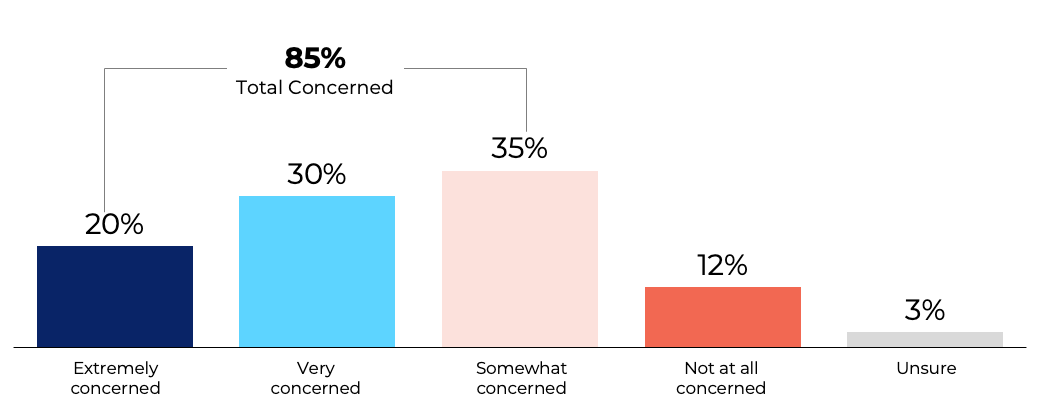
Due to rounding up, percentage numbers may not add up to 100%.
Last year, voters approved the creation of the Texas Water Fund to develop new water supplies and address aging infrastructure such as water pipes, with $1 billion invested in that fund. Do you favor or oppose the Texas Legislature dedicating an additional $1 billion per year to this fund over upcoming decades to meet our growing water needs?
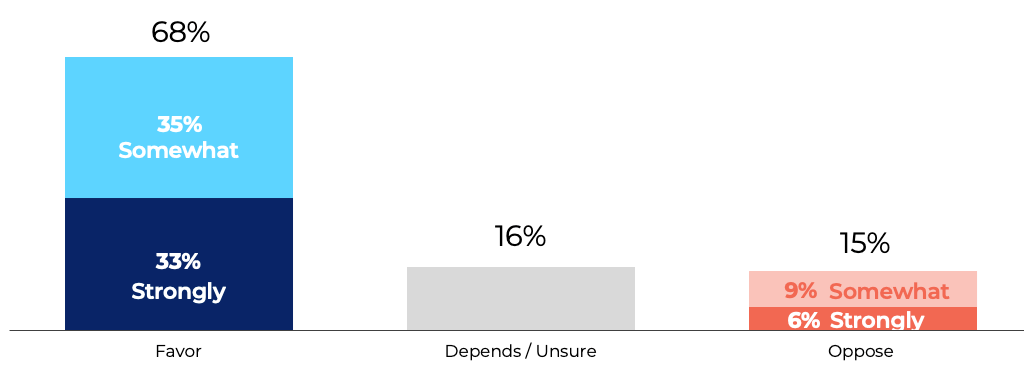
Due to rounding up, percentage numbers may not add up to 100%.
2. Electric grid reliability
Based on your experience, which best describes how confident you are in the reliability of the state’s electric grid?
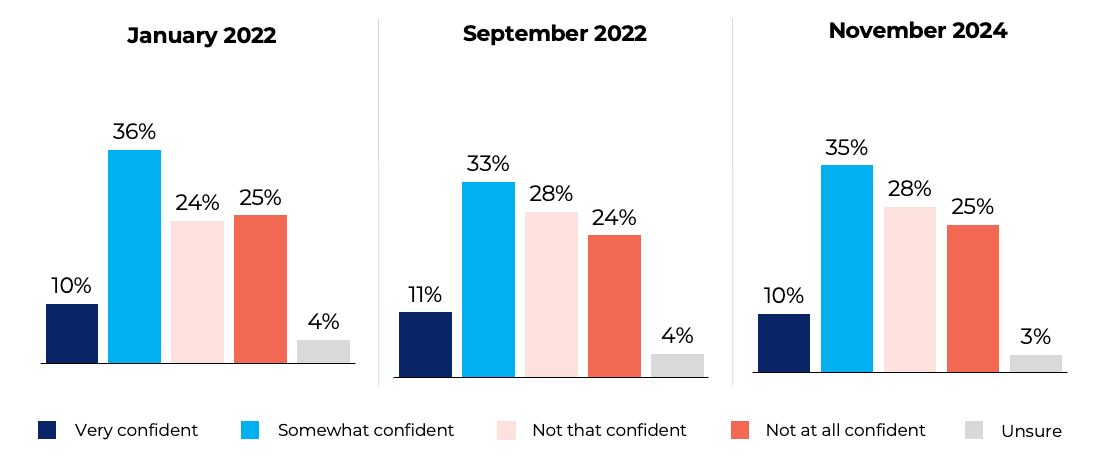
Due to rounding up, percentage numbers may not add up to 100%.
Texas lawmakers are considering a proposal to spend $5 billion of state funds to double the size of the Texas Energy Fund, which provides financial support to companies to build new natural gas power plants and is intended to help meet the increased demand for electricity. Knowing this, do you favor or oppose this proposal?
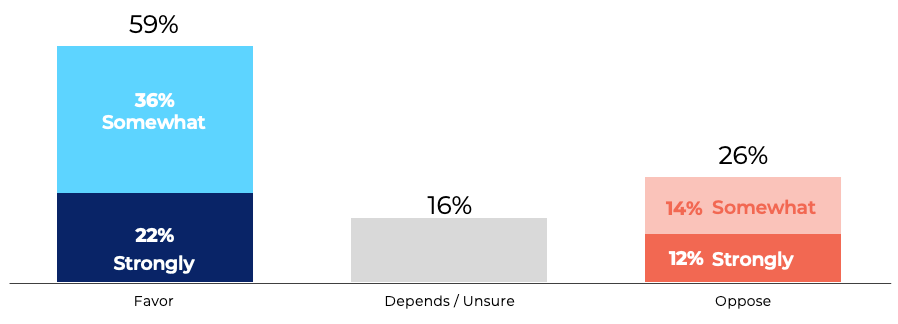
Due to rounding up, percentage numbers may not add up to 100%.
3. High school and workforce readiness
Do you agree or disagree that Texas students are graduating high school immediately ready to enter the workforce and succeed in the future economy?
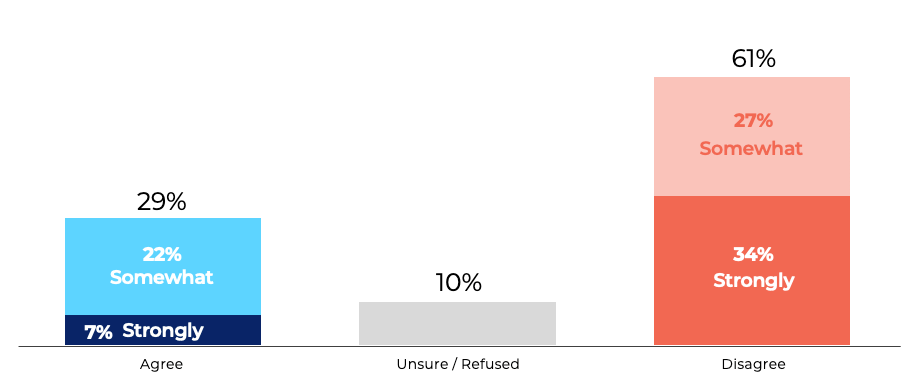
Due to rounding up, percentage numbers may not add up to 100%.
Do you agree or disagree that all Texas high school students should have access to workforce training or credential programs that provide a certification which allows them to graduate ready to compete for good-paying jobs?
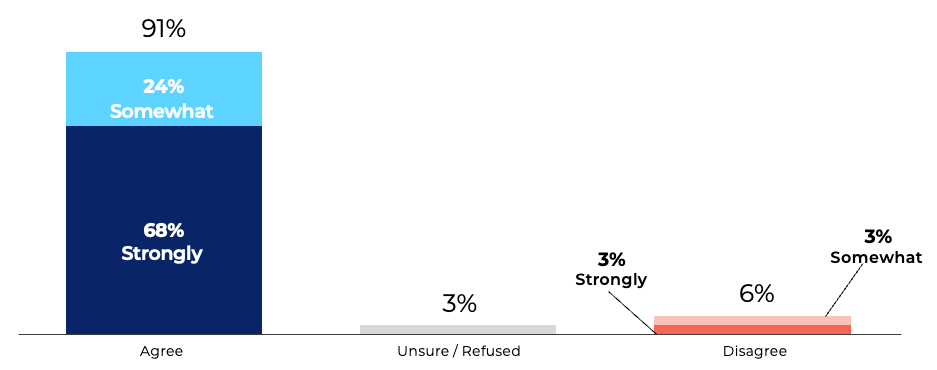
Due to rounding up, percentage numbers may not add up to 100%.
4. Health care costs and transparency
In recent years, large investment companies called private equity firms have purchased ownership stakes in doctor’s offices and hospitals. Which best describes your level of concern regarding investment groups and financial entities influencing medical decision-making in the doctor’s offices and hospitals in which they have an ownership stake?
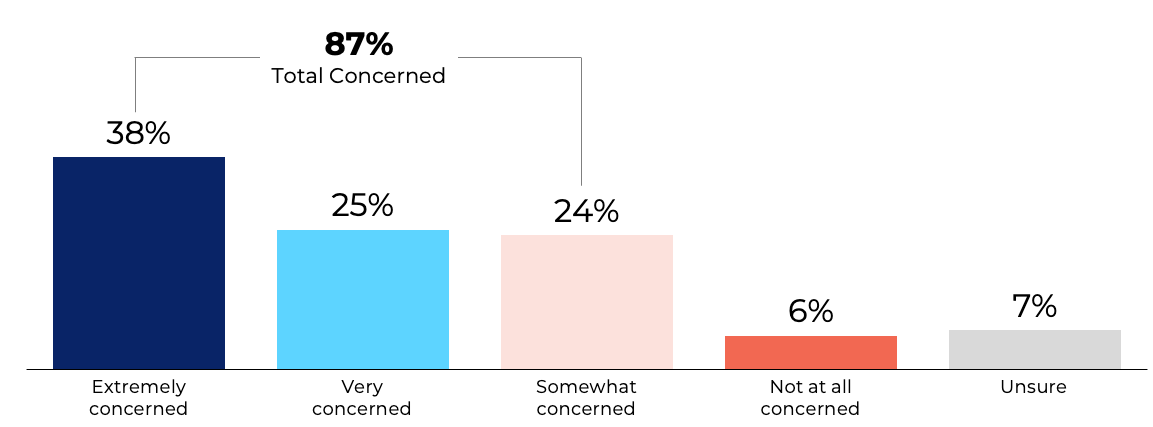
Due to rounding up, percentage numbers may not add up to 100%.
There is evidence that consolidation of health care companies, such as hospitals and medical practices, leads to higher prices and fewer choices. Do you agree or disagree that the Texas state government should more actively regulate health care mergers to ensure the market remains sufficiently competitive?
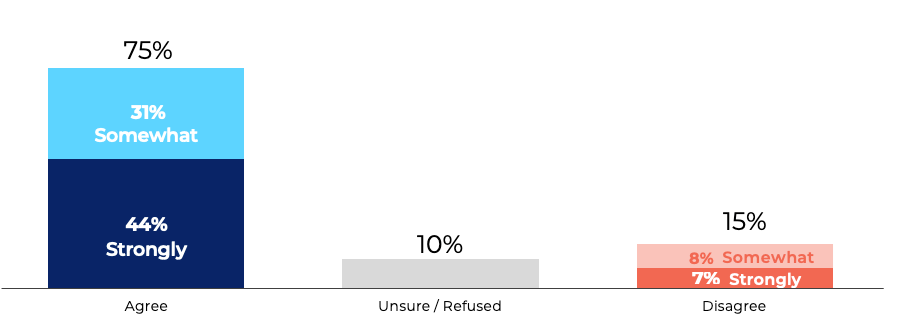
Due to rounding up, percentage numbers may not add up to 100%.
5. Housing affordability
Do you agree or disagree that homeowners should have the right to build an additional home, such as a garage apartment or tiny home, on their own property?
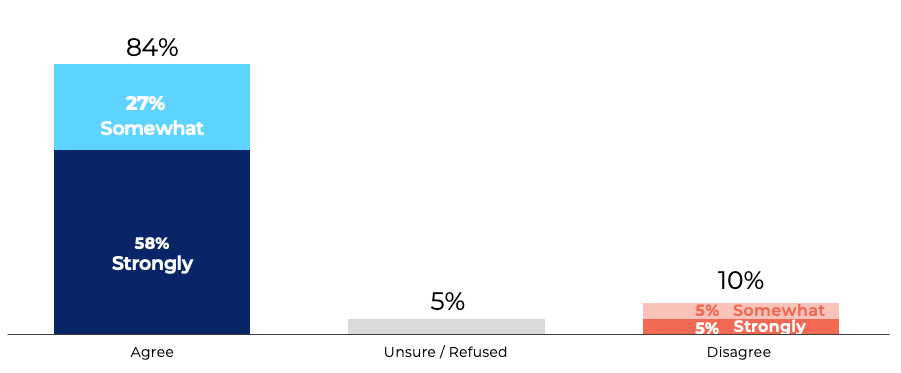
Due to rounding up, percentage numbers may not add up to 100%.
6. Child care
Which best describes your level of concern regarding the availability of affordable child care in Texas?
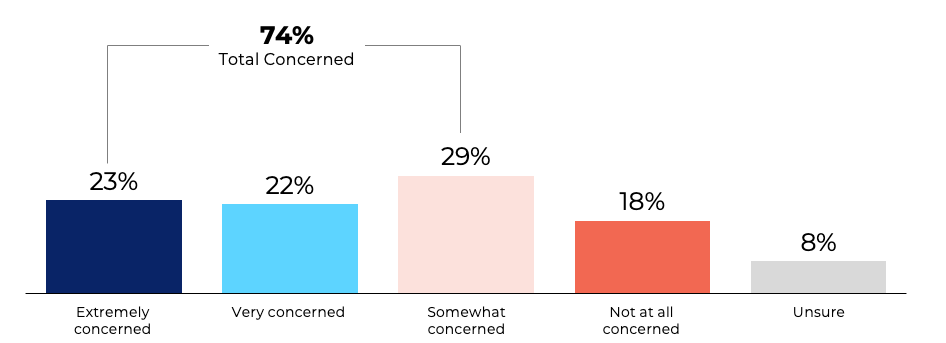
Due to rounding up, percentage numbers may not add up to 100%.
Other findings
- 71% of Texas voters believe students using state funds for educational expenses, including tuition at private schools, should take tests similar to those in public schools to ensure learning outcomes can be compared and evaluated.
- Texans don’t want to wait too long before providing help to students falling behind in math: 79% of voters favor requiring schools to notify parents as early as kindergarten if their child is not performing at grade level in math.
- Texas voters tell us the maximum indoor temperature in Texas prisons should be 78°F, on average. Just 8% of Texas voters believe that the maximum temperature should exceed 85 degrees, with 83% supporting a maximum temperature below 85 degrees.
- Texas voters are split on how AI should shape state government. While 47% prioritize restricting its use due to safety and privacy concerns, others see potential. Nearly a quarter (24%) of voters believe AI could make government services more efficient, reducing waste and cutting through bureaucracy.
Want to see more from our voter poll? Check out the full findings.
Is Texas your forever home?
More than half of Texas voters told us that if they had their choice, they’d still choose to live in Texas for the rest of their lives. Let us know your thoughts.
